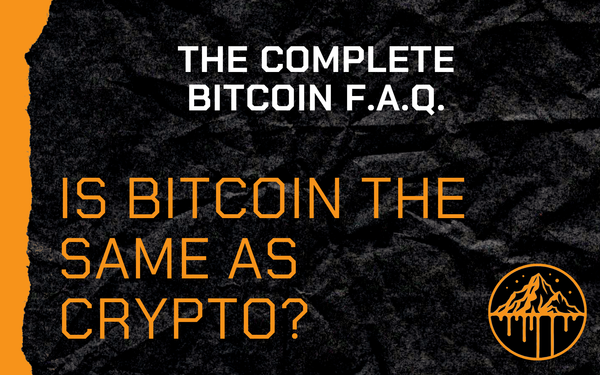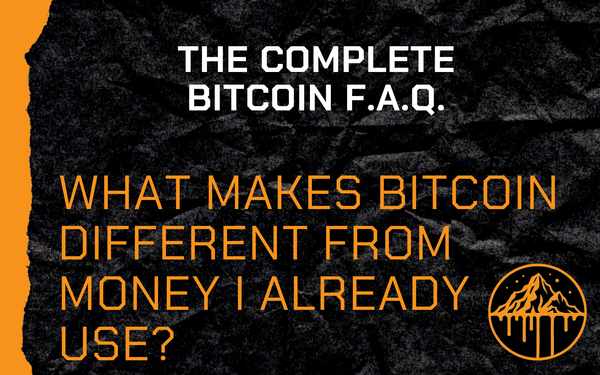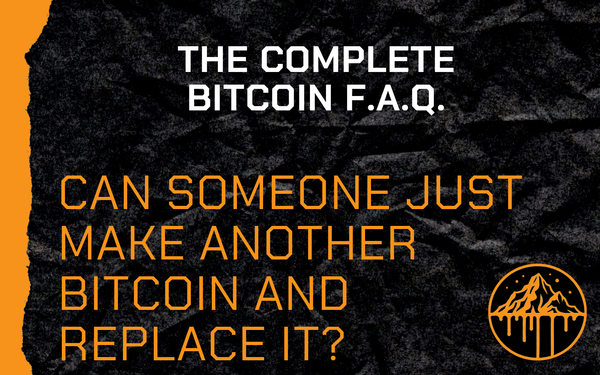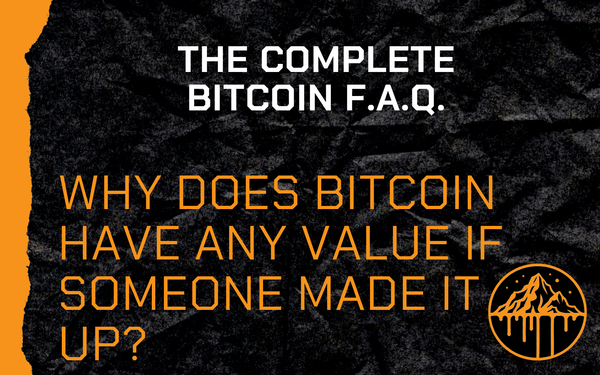The Ostrich Effect: Why People Ignore Financial Reality Until It’s Too Late
Most people don’t make deliberate financial decisions—they default to whatever feels easiest. When things get uncomfortable, they avoid the problem altogether. This is the Ostrich Effect, a cognitive bias where people ignore bad news to avoid stress, even when ignoring it makes things worse.

The Psychological Trap: Why People Avoid Hard Truths
You hear it all the time:
- “Inflation is bad, but what can you do? Life goes on.”
- “I know banks are failing, but mine seems fine.”
- “Bitcoin is interesting, but I’ll think about it later.”
Most people don’t make deliberate financial decisions—they default to whatever feels easiest. When things get uncomfortable, they avoid the problem altogether.
This is the Ostrich Effect, a cognitive bias where people ignore bad news to avoid stress, even when ignoring it makes things worse.
Instead of taking action, they pretend everything is fine—until reality forces their hand.
I was diagnosed with a chronic disease in the fall of 2017, but I’d felt the symptoms for months before the diagnosis. I knew something in my body was off, but the Ostrich Effect was in full force—I told myself I’d deal with it later.
My dad used to say that you can’t ignore water damage in your home because it never gets better, only worse. It’s easier to avoid the hard truth than deal with the time and money it might cost to fix it. That hole in the roof ain’t gonna fix itself.
How the Brain Works: The Psychology of the Ostrich Effect
Our brains are wired to seek comfort and avoid pain. Looking at bad financial news creates fear, uncertainty, and doubt (F.U.D.), so people avoid it altogether.
But avoiding reality doesn’t change it—it just makes it harder to deal with later.
Why People Ignore Hard Truths:
- Short-Term Relief > Long-Term Security → Avoiding bad news feels good now but creates bigger problems later.
- Cognitive Dissonance → When reality conflicts with our beliefs, it’s easier to ignore the truth than change our mindset.
- Fear of the Unknown → Looking at a problem means we might have to make a difficult decision.
The Cycle of Financial Avoidance:
- See a warning sign. (“Inflation is getting bad.”)
- Feel anxiety. (“I don’t want to deal with this.”)
- Avoid the topic. (“I’ll think about it later.”)
- The problem gets worse. (“Why didn’t anyone warn me?”)
Most people don’t realize they’re caught in a loop of avoidance until it’s too late.
How the Ostrich Effect Affects Investing & Finance
Most financial mistakes aren’t bad decisions—they’re the result of ignoring reality for too long.
- Even when inflation is obvious, people assume it’s temporary.
- Even when banks fail, people assume someone will fix it.
- Even when their savings lose value, they assume it’ll all work out.
Examples of the Ostrich Effect in Finance:
- “I don’t want to check my 401(k)—I’m sure everything is fine.”
- “I know inflation is bad, but I don’t want to think about it.”
- “Bitcoin sounds interesting, but I’ll look into it later.”
Later = Never
People wait until their money is already gone before they start asking the right questions.
Bitcoin Case Study: How the Ostrich Effect Delays Adoption
Bitcoin isn’t difficult to understand—it’s difficult to accept.
To embrace Bitcoin, people must confront the flaws in the system they’ve trusted their whole lives. That’s uncomfortable, so most people look away instead of learning.
Common Ostrich Effect Excuses for Avoiding Bitcoin:
- “The dollar has worked my whole life—it’ll be fine.”
- “If things were really that bad, the government would do something.”
- “I’ll buy Bitcoin when it’s easier.”
By the time they realize they need Bitcoin, they can’t afford it.
What Happens When People Overcome the Ostrich Effect?
- They stop avoiding the truth and start preparing for it.
- They realize the risk isn’t Bitcoin—it’s staying in a failing system.
- They take control instead of waiting for someone to save them.
How to Recognize & Overcome the Ostrich Effect
Want to escape the trap of financial avoidance?
Face the facts—early.
- The earlier you look at a problem, the more options you have to fix it.
Ask: What am I avoiding?
- If you feel uneasy about something, dig into it instead of running from it.
Shift from fear to action.
- Fear paralyzes. Action liberates. The only way forward is to start.
Prepare now, not later.
- By the time the majority reacts, it’s already too late.
Final Thought: Why Ignoring the Problem Makes It Worse
Most people don’t resist Bitcoin because they’ve thought it through. They resist it because they don’t want to think about why it exists.
But the longer you avoid looking, the fewer choices you’ll have.
By the time the crowd realizes what’s happening, their wealth is already gone.
The question isn’t whether financial reality will hit—it’s whether you’ll see it coming.
Wealth melts. How much you got left?
Disclaimer: Melting Wealth is not financial advice. It’s a wake-up call. Think for yourself, question the system, and take responsibility for your decisions. Your money, your risk, your move.





